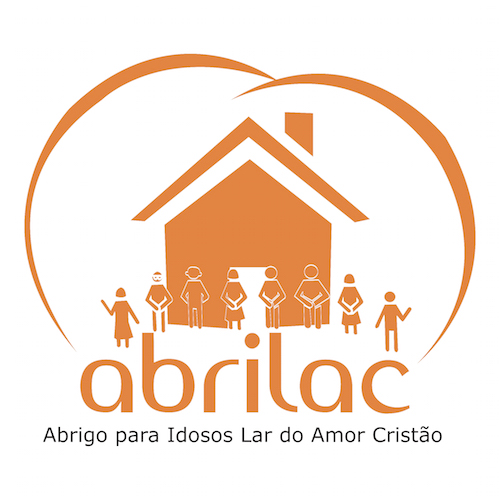Explainer: When am I contagious if infected with Omicron? A study from Japan found that people with the Omicron variant shed the virus for longer after symptoms appear. According to Chicago-area health departments, people should assume the test results are accurate and should isolate from others to reduce the risk of spreading the virus. The Public Health Agency of Canada still recommends that people who contract COVID-19 should self-isolate for at least 10 days, but every province and territory in the country stopped following that advice starting Dec. 30, 2021, as per the National Post. Update: This article was updated Aug. 11 with revised guidance from the Centers for Disease Control and Prevention and the Food and Drug Administration. "Obviously if you're symptomatic, you test right away. Those who test positive, regardless of vaccination status, must isolate, according to theCenters for Disease Control and Prevention. Why are we still having these debates? Consider consultation with infection control experts. CDCs COVID-19 Community Levels recommendations do not apply in healthcare settings, such as hospitals and nursing homes. Canada has reported a total of 2,822,614 COVID-19 cases as of Wednesday, according to publicly available government data. All rights reserved. For healthcare settings, please see Managing Healthcare Personnel with SARS-CoV-2 Infection or Exposure to SARS-CoV-2 and Interim Infection Prevention and Control Recommendations for Healthcare Personnel. Copyright IBTimes 2023. How to know you're no longer contagious with covid, according to A high-quality mask should be worn around others at home and in public through day 10. According to the CDC, if you have mild to moderate COVID-19, you may be contagious for 10 days from the first day you noticed symptoms. . BA.5 seems to be the most contagious version to date and is causing most of the current COVID-19 cases in . But a PCR is not the right choice to figure out when you are no longer infectious, because of its sensitivity, Grad explains. Centers for Disease Control and Prevention (CDC), How the Omicron Surge Is Taxing Hospitals, Omicron Symptoms: How They Compare with Other Coronavirus Variants. As people around the world welcomed a new year, the variant continued to surge more quickly than any previous strain in many areas. COVID-19 cases in United States: The second most prevalent strain BQ.1.1 accounts for 6.7 per cent. How to minimize COVID's impacts once the federal emergency "ends" If you are a K-12 student or staff member, you also should report your . How Long Are You Contagious With Omicron COVID Infection? Here's What While there is currently very little information on omicron, the variant's "period of communicability is no shorter than the other variants," Dr. Theresa Tam said, according to a report by the National Post. Keep checking this story for updates on vaccination rates, latest data updates of new cases and the omicron variant, along with local and national headlines.Confirmed COVID-19 Cases in OklahomaThe Oklahoma State Department of Health announced it will no longer release daily COVID-19 situation updates as it moves toward the . Lastly, to protect both yourself and your loved ones, make sure youre up to date on your COVID-19 boosters. Previously, the CDC said people who were not fully vaccinated and who came in close contact with an infected person should stay home for at least 10 days. But its unclear if this remains true with the latest Omicron variants. Digestive symptoms, like stomach pain, might be among the earliest symptoms of COVID-19 that you experience. The CDC continues to leave that as an option and does not explicitly recommend it. For details on when to get tested for COVID-19, see Test for Current Infection. So, youll want to be extra careful at this stage though its hard to know if youre sick before you have symptoms, which makes those first 48 hours really tricky. Omicron Incubation Period Is 3 DaysWhat That Means - Health He test on the 3rd day of read more. For the latest news, sign up for our free newsletter. All Rights Reserved. Once that period ends, they should partake in strict mask use for an additional five days. Omicron variant: What to do if you test positive for COVID-19 COVID Testing Sites Shut Down Amid Investigation, Mass. In January, two studies suggested the updated vaccine has continued to be effective against emerging Omicron strains. CDC twenty four seven. As new variants have emerged, the first question has been how transmissible each one is compared to its predecessor. More information is available, Updates from Previous Content: Ending Isolation and Precautions Webpage, Updates from Previous Ending Home Isolation Webpage Content, Recommendations for Fully Vaccinated People, Isolation and Precautions for People with COVID-19, Managing Healthcare Personnel with SARS-CoV-2 Infection or Exposure to SARS-CoV-2, Interim Infection Prevention and Control Recommendations for Healthcare Personnel, Interim Guidelines for Collecting, Handling, and Testing Clinical Specimens for Coronavirus Disease 2019 (COVID-19), National Center for Immunization and Respiratory Diseases (NCIRD), Post-COVID Conditions: Healthcare Providers, Decontamination & Reuse of N95 Respirators, Purchasing N95 Respirators from Another Country, Powered Air Purifying Respirators (PAPRs), U.S. Department of Health & Human Services. New Zealand closed its borders in March last year, requiring all international arrivals to undergo two weeks of hotel quarantine, a period that was recently cut to seven days, Stay up to date with our daily newsletter, CDC Warns These Places Pose A Very High Risk For Travelers, Mamma Mia! There is no hard-and-fast rule for how sick a person will get or how long a person remains infectious. So what is the period where someone with COVID is most contagious? Antigen tests are the type that you may have picked up from the pharmacy (from brands like iHealth) or received from the government (which is still sending out free tests, by the way). Here are the days you are most contagious when you have Covid You might want to test again and of course symptoms you cannot ignore - scratchy throat, headaches, all kinds of symptoms - anything new can be a symptom of this new illness.". When is the Best Time to Get Tested After Exposure? Theres no reliable or easy way to determine if youre still contagious, which is why health officials recommend isolating at home for 5 to 10 days, depending on your symptoms. Saving Lives, Protecting People, Given new evidence on the B.1.617.2 (Delta) variant, CDC has updated the, The White House announced that vaccines will be required for international travelers coming into the United States, with an effective date of November 8, 2021. . These must be done . "With Omicron, most transmission appears to occur during the one to two days before. "And in that five-to-seven-day window, you know, there's some depending on whether people have been vaccinated, underlying conditions, etc., but the risk drops a lot and the feeling is that in the general population, combined with masking, etc. The phase when youre most contagious starts about 48 hours before you test positive and ends five days after your symptoms begin, according to Dr. Neha Vyas, a family medicine doctor at Cleveland Clinic in Ohio. Shouldnt I test negative on a rapid test before leaving isolation? The CDC says that its guidelines were updated to reflect growing evidence that suggests transmission of COVID-19 often occurs one to two days before the onset of symptoms and during the two to . If you dont get tested, stay home and self-quarantine for 10 days after travel. Parsonnet says its difficult to quantify how long asymptomatic individuals are contagious because its hard to identify when and how long theyve been infected. How long can you spread Omicron? | CNN This has been a contentious issue. At the end of the period, if you have no symptoms, you can return to normal activities but must wear a mask everywhere even at home around others for at least five more days. How Long Does Omicron Last? | TheHealthSite.com Still, some evidence suggests about one-third of people who contract the infection continue to be infectious for a longer period. The CDC urges those who have or may have COVID-19 to watch for emergency warning signs and seek medical care immediately if they experience symptoms including: "This list is not all possible symptoms," the CDC states. Learn how it feels and how to manage it. Updated guidance to reflect new recommendations for isolation for people with COVID-19. According to the CDC, "day 0 is your first day of symptoms." This meant that omicron was no different from other variants and that an infected person is "still capable of shedding the virus and communicating this even up to the 10 days," Tam said. That change was announced in late December, before the height of the omicron peak in the U.S. A study found that omicron's viral load was highest three to six days after diagnosis or symptom onset The virus only disappeared after around 10 days, which meant omicron was no different. As more children remain in classrooms across Massachusetts and omicron cases continue to surge through the state, people are asking how long they'll be contagious after contracting COVID-19. People who are positive for COVID should stay home for five days, the CDC said Monday, changing guidance from the previously recommended 10 days. Another treatment, remdesivir, is also expected to be effective against Omicron. Its definitely not too late to get COVID-19 and flu shots, as they will still curb severe symptoms, even if you do contract illness, Khan said. Cookies used to track the effectiveness of CDC public health campaigns through clickthrough data. How Long Before Someone With COVID-19 Isn't Contagious? - Healthline Mail. Once that period ends, they should partake in strict mask use for an additional five days. Anyone exhibiting symptoms should get tested for COVID-19. Still, those who test positive but dont have symptoms should isolate for at least five days, according to the latest CDC guidelines. When you should take a PCR vs. a rapid antigen test | CNN The CDC. Its important to remember that COVID-19 tests currently available are not really designed to tell whether or not someone is infectious. All rights reserved. Also, if a moderately or severely immunocompromised patient with COVID-19 was symptomatic, there should be resolution of fever for at least 24 hours (without the taking fever-reducing medication) and improvement of other symptoms. How long can you spread Omicron? - WTOP News If you receive a negative rapid antigen test after five days, you are most likely no longer contagious and you may end the isolation as long as you wear a tight-fitting mask around others per the current CDC recommendation. Thats because Omicron appears to cause symptoms faster than previous variants about three days after infection, on average, according to preliminary studies. For those without symptoms, CDC guidance states they are considered contagious at least two days before their positive test. When is COVID-19 most contagious? How long after an exposure does it Added information on recent reports in adults of reinfection with SARS-CoV-2 variant viruses. If you do not have a primary care provider, Maricopa County residents may call 602-506-6767 to report a positive test. What's COVID's incubation period? Can Omicron spread if you're Can Probiotics Help Prevent or Treat COVID-19 Infection? Scientists are seeing signals that the wave may have peaked in Britain and is about to do the same in the U.S. Dr. Amy Karger of the University of Minnesota Medical School recommends that people test themselves three days and five days after exposure, if possible.

